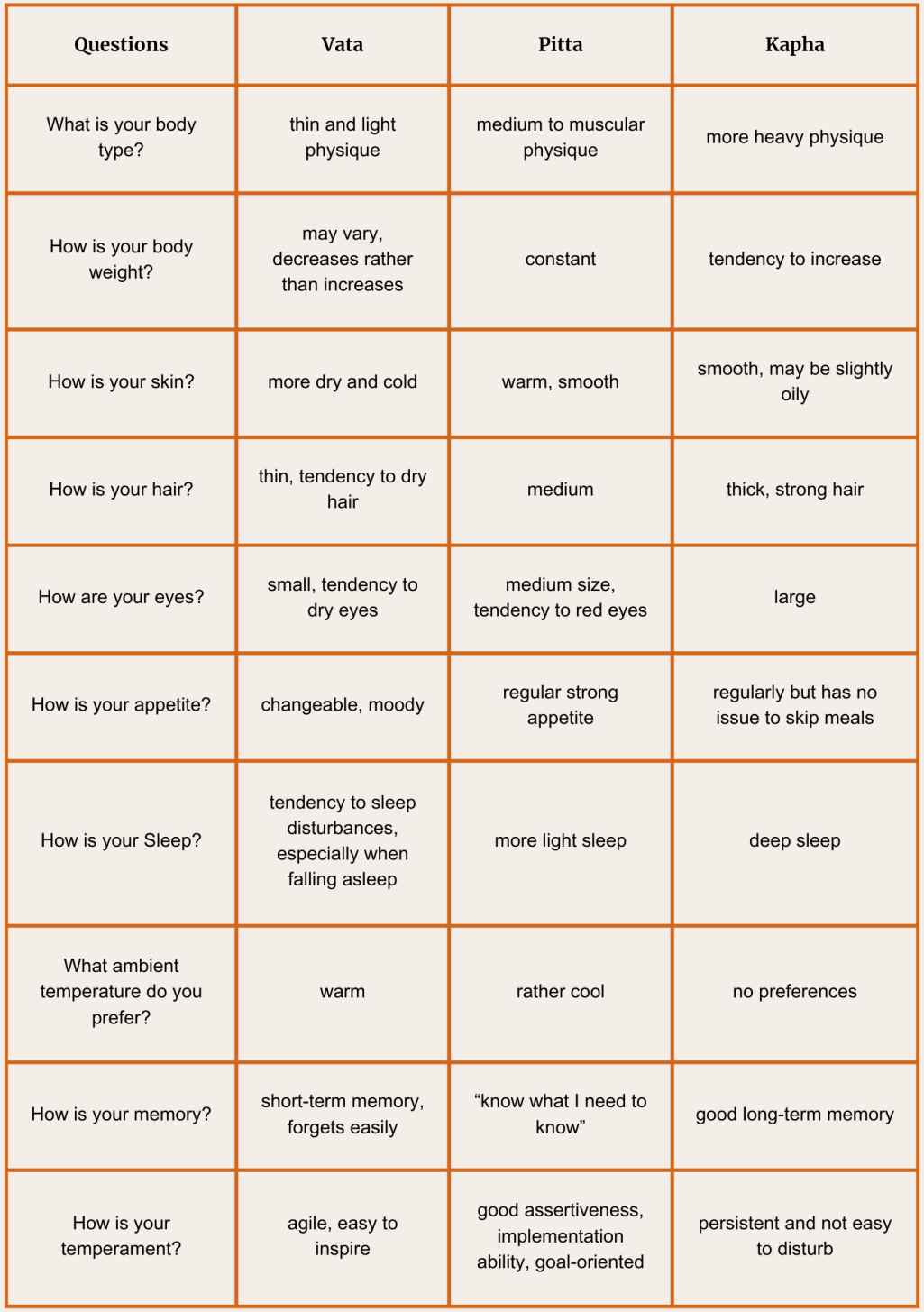Dosha- Test
Identify your individual constitution
What are Doshas and ayurvedic Constitutions?
According to Ayurveda, a human being consists of two different parts: the structural parts, which include muscles, blood vessels, nerve pathways, etc., and the "forces and energies", which include the so-called three doshas.
These three doshas are called "Vata", "Pitta" and "Kapha". They are particularly important and regulate human functions in different ways.
Every person has all three doshas within them since birth, but in an individual composition. This individual composition is the healthy basic constitution of a person, which is called "Prakriti". In Ayurveda, it depends on this individual constitution what lifestyle a person should have and how a person should be treated in case of illness.
Therefore, it is very important to identify your own constitution and ensure that it does not get out of balance.

What is my Constitution?
The following questionnaire can help you to identify your individual constitution and thus find more balance and wellbeing in your life.
When answering the questions, remember that the questions relate to your normal, healthy state.
Also, keep in mind that everyone carries all three doshas and most people have two dominant doshas. This means that it is quite possible that you will find some of your answers in two or even all three doshas.
For optimal visual representation, it is recommended to view the questionnaire on a laptop or computer.
To answer the questionnaire easily, you can use a piece of paper and a pen.

Meaning and tasks of the three doshas
Vata

Vata is attributed to the element air and is responsible for everything in the human body that has to do with movement. It regulates the musculoskeletal system, breathing, movements in the gastrointestinal tract and the excretory processes.
People with a Vata-dominant constitution tend to be thin, have a quick grasp of things, are easily inspired and are mentally agile.
When Vata is out of balance, it can lead to constipation, physical and mental restlessness or neurological problems.
Pitta

Pitta is attributed to the fire element and is responsible for change and transformation processes in the human body such as digestion.
People with a Pitta-dominated constitution often have a sharp intellect, good assertiveness and a goal-oriented way of working.
If pitta gets out of balance, it can lead to inflammation on a physical level and to egoism, anger and rage on a mental level.
Kapha

Kapha is attributed to the earth element and represents stability and structure in the human organism. It ensures healthy mucous membranes, bones and joints.
People with a Kapha-dominated constitution often have a heavy physique, a good long-term memory, a deep sleep and are difficult to disturb.
If Kapha becomes unbalanced, it can lead to obesity, mucous diseases, lethargy, lack of motivation or depression.
2025 Ceternal. All Rights Reserved.
Wir benötigen Ihre Zustimmung zum Laden der Übersetzungen
Wir nutzen einen Drittanbieter-Service, um den Inhalt der Website zu übersetzen, der möglicherweise Daten über Ihre Aktivitäten sammelt. Bitte überprüfen Sie die Details in der Datenschutzerklärung und akzeptieren Sie den Dienst, um die Übersetzungen zu sehen.
